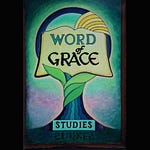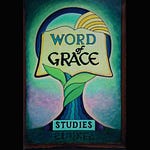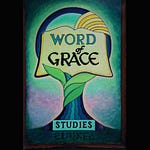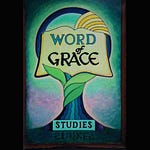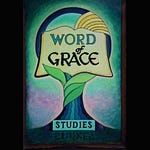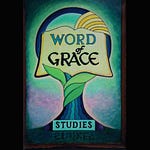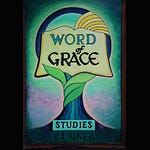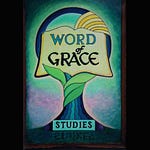Ministry in Lydda and Sharon (Acts 9:32–35)
Peter spreads the message of the resurrection of Christ (Acts 9:32).
Aeneas is healed as a sign to the Jews in Lydda (Acts 9:33–34).
The residents of Lydda and Sharon turn to the Lord (Acts 9:35).
Historical and Geographical Context:
Lydda:
Established by the tribe of Benjamin after the Babylonian exile (Nehemiah 11:35).
Known under Roman rule as Diospolis (“City of Zeus”).
Located in the coastal plain of Judea, about 10–12 miles southeast of Joppa and 25–30 miles northwest of Jerusalem.
Identified with the modern Israeli city of Lod.
Functioned as a significant administrative and commercial center along the Via Maris trade route.
Sharon:
A fertile coastal plain in which Lydda was located.
Extended from Joppa to Mount Carmel, about 50 miles long and 10 miles wide.
Part of the major international highway network between Egypt and Mesopotamia.
The Resuscitation of Tabitha (Acts 9:36–43)
Tabitha, a disciple in Joppa, is known for good works and charitable alms (Acts 9:36).
She becomes ill and dies (Acts 9:37).
The disciples send for Peter (Acts 9:38).
God raises Tabitha through Peter (Acts 9:39–40).
Peter presents her alive (Acts 9:41).
Many in Joppa believe because of her restoration (Acts 9:42).
Peter remains in Joppa for several days (Acts 9:43).
God Sends a Messenger to Cornelius (Acts 10:1–8)
Cornelius:
A centurion of the Italian Cohort (Acts 10:1).
The unit’s Latin name, Cohors II Italica Civium Romanorum, signifies it was composed of Roman citizens—an elite auxiliary unit.
Possibly a volunteer force, stationed in Caesarea Maritima.
A proselyte who feared God (Acts 10:2).
Cornelius receives a vision during prayer at the ninth hour (Acts 10:3).
An angel tells him:
His prayers and alms have ascended to God (Acts 10:4).
He must send for Peter, who is in Joppa (Acts 10:5–6).
Cornelius sends two servants and a devout soldier (Acts 10:7–8).
Peter’s Vision: Gentiles Will Be Fellow Heirs (Acts 10:9–23)
At the sixth hour, Peter prays on a rooftop (Acts 10:9).
He falls into a trance and sees:
A sheet descending from heaven with all kinds of animals (Acts 10:10–12).
A voice commands him to kill and eat (Acts 10:13).
Peter refuses, citing uncleanness (Acts 10:14).
The voice says not to call common what God has cleansed (Acts 10:15).
This occurs three times (Acts 10:16).
The men from Cornelius arrive while Peter is perplexed about the vision (Acts 10:17–18).
The Spirit instructs Peter to go with them (Acts 10:19–20).
The men explain why they were sent (Acts 10:21–22).
Peter invites them in and departs with them the next day (Acts 10:23).
The Gentiles Are Accepted into the Church (Acts 10:24–48)
Peter Meets Cornelius (Acts 10:24–29):
Cornelius expects Peter and gathers relatives and friends (Acts 10:24).
He worships Peter, but Peter corrects him (Acts 10:25–26).
Many are assembled to hear Peter (Acts 10:27).
Peter explains that, though unlawful for Jews to associate with Gentiles, he came because the Spirit instructed him (Acts 10:28–29).
Cornelius Explains the Vision (Acts 10:30–33):
Describes the angel in bright clothing and the command to send for Peter (Acts 10:30–32).
He gathers everyone to hear what the Lord has commanded Peter (Acts 10:33).
Peter’s Sermon: The Death and Resurrection of Christ (Acts 10:34–43):
God shows no partiality; all who fear Him are accepted (Acts 10:34–35).
God sent the message to Israel, preaching peace through Jesus (Acts 10:36).
The people knew of Jesus’ ministry after John’s baptism (Acts 10:37).
Jesus was anointed by God, did good works, and healed the oppressed (Acts 10:38).
Peter and others witnessed His ministry and death (Acts 10:39).
God raised Him on the third day (Acts 10:40).
He appeared to chosen witnesses (Acts 10:41).
These witnesses were commanded to proclaim Him as Judge of the living and the dead (Acts 10:42).
The prophets testify that belief in Him brings forgiveness of sins (Acts 10:43).
The Holy Spirit Falls on the Gentiles (Acts 10:44–48):
While Peter is speaking, the Holy Spirit comes upon the Gentiles (Acts 10:44).
This amazes the Jewish believers (Acts 10:45).
The Gentiles speak in tongues (Acts 10:46).
Peter commands that they be baptized (Acts 10:47–48).
This fulfills the mystery that Gentiles are fellow heirs and members of the same body (Ephesians 3:6).



